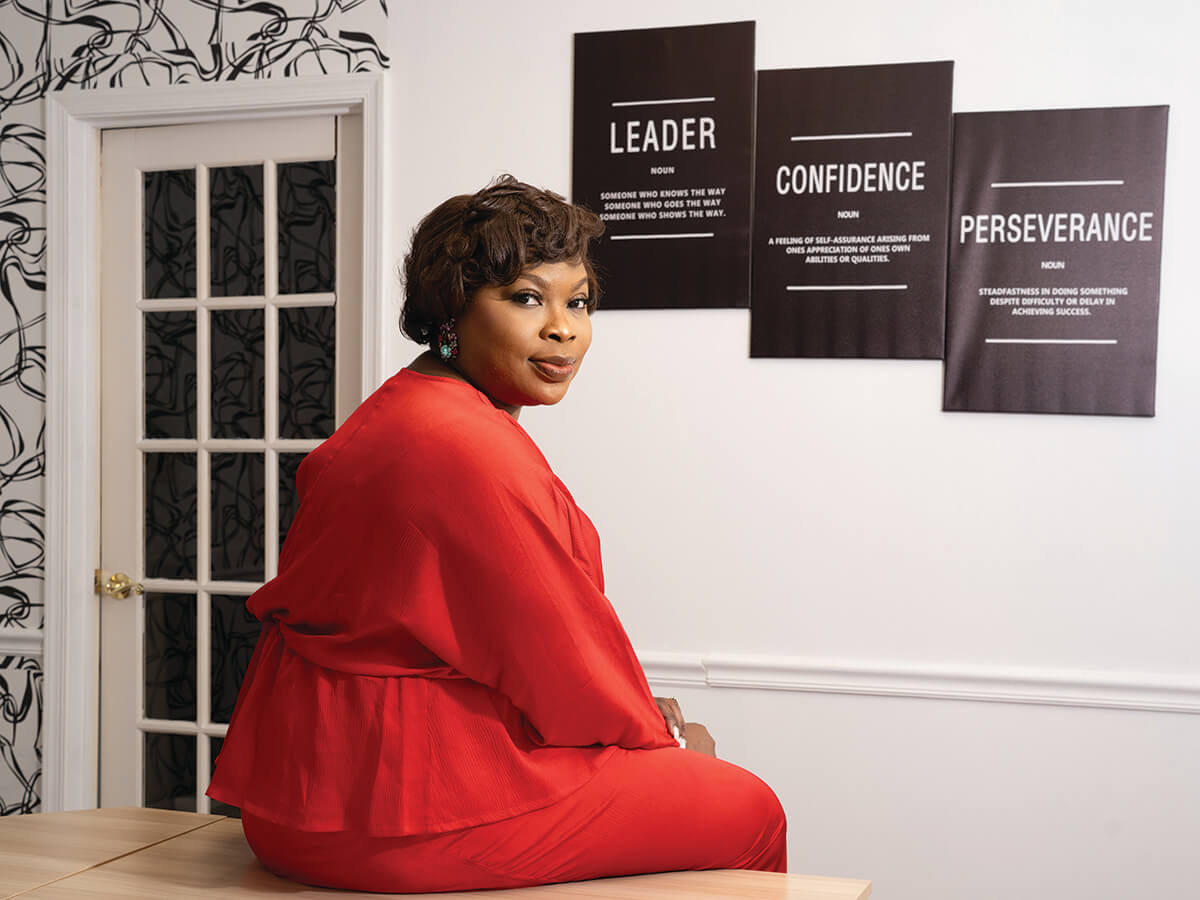GameChangers
Teniola Akinwuntan is Removing Barriers for Women Facing Adversity
Her Catonsville nonprofit, Women of Valor, provides food, housing, child-care assistance, trauma-informed support, and workforce training for victims of domestic violence.

As a woman of color who grew up in Lagos, Nigeria, Teniola Akinwuntan knows firsthand about the barriers marginalized individuals face.
“Growing up in a community where opportunities were limited fueled my passion to create a platform that provides resources for those who are underserved,” says Akinwuntan.
That personal experience motivated Akinwuntan to found Women of Valor in 2018 to lift up women facing adversity. The Catonsville nonprofit provides food, housing, child-care assistance, and trauma-informed support for victims of domestic violence. It also operates a for-profit workforce training arm, TheeSeeds LLC, that provides career coaching and equips women (and some men) with skills needed to get jobs in hospitality, construction, IT, health care, and other fields.
It serves 7,000 individuals in Baltimore City and eight counties, including Howard, Harford, and Montgomery, working in tandem with the Department of Labor, county job-training programs, and various accrediting boards.
The nonprofit’s work has gotten noticed. In March, the Executive Alliance bestowed Women of Valor with an Honor Roll Award for Women’s Representation, given to establishments that advance women in the workplace. It received the 49th Annual Mayor’s Business Recognition Award, which honors organizations that improve the quality of life for city residents, in December.
“That was a validation of our hard work between our team members and stakeholders and partnerships across the business community,” Akinwuntan says.
For Akinwuntan, the joy in her work also comes from seeing the complete turnaround that women make after using the nonprofit’s services—usually after 90 days.
Depending on the type of services they receive, they might gain employment or move from being homeless into a place of their own.
“On the third month, I see them start to get their ducks in a row and change into a brighter version [of themselves],” Akinwuntan says.